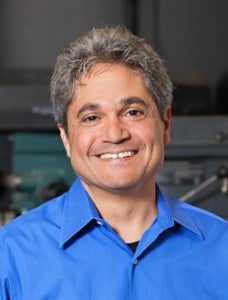E3 and the future of virtual reality
Scholars are watching developments at this year’s E3 and can discuss what’s next in VR.
Contact: Andrew Good at (213) 740-8606 or gooda@usc.edu.
The “surreal” future of virtual reality content
“I’m interested in how the content is going to evolve. I believe the answers will be found through our students in the School of Cinematic Arts, because they’re pushing the boundaries of interactive techniques with visual techniques. They’re paving the way into a surreal virtual future.”
Mark Bolas, director of Mixed Reality Research at the USC Institute for Creative Technologies, has studied virtual reality technology for almost 30 years. He mentored Palmer Luckey, CEO of Oculus Rift, when Luckey was working at ICT and developing his technology. Bolas also directed development of an open-source VR toolkit that preceded many of the consumer-facing VR products available now. He can discuss the future development of virtual reality content and hardware.
Contact: (650) 208-8903 or bolas@ict.usc.edu.
VR: a game-changer for everything, including gaming, PTSD and autism treatment, education and more
“After a hype-laden start in the early 90’s (and a hard crash in the mid-90’s), with many considering VR a failed technology since that time, the technology to create and deliver VR has now caught up with the vision from back then. VR will be a game changer not just for the game industry, but in mental health, medicine, rehabilitation, education, journalism, social interaction and beyond!”
Albert “Skip” Rizzo, director of medical virtual realty at the USC Institute for Creative Technologies, is an expert in the use of VR for mental health treatment. Rizzo’s work has pioneered the treatment of PTSD using VR-enhanced immersion therapy. He can discuss the many different fields that virtual reality can be applied to, including gaming, healthcare, education, journalism and social interaction.
Contact: (213) 610-4737 or rizzo@ict.usc.edu.



